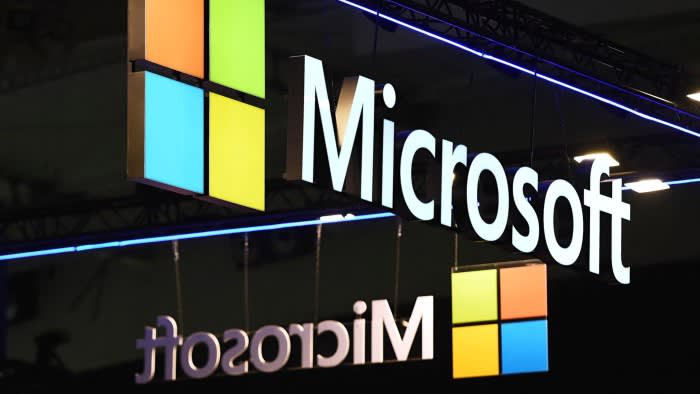Unlock the Editor’s Digest for free
Roula Khalaf, Editor of the FT, selects her favourite stories in this weekly newsletter.
Microsoft has been feeling the heat in Europe as regulators increasingly scrutinise the tech company’s deals and business practices.
As the software giant ventures into artificial intelligence and other growing areas including cloud computing, gaming and video conferencing, it has had regulatory battles aplenty in Europe after a long truce.
Last year, Microsoft had a battle with regulators over its $69bn acquisition of Activision, which produces popular games such as Call of Duty. The UK’s competition watchdog first blocked the transaction, leading to furious criticism from Microsoft vice-chair and president Brad Smith who said the move had shaken confidence in doing business in the UK. Microsoft eventually won that battle though when the deal was cleared.
In Brussels, Microsoft has been fighting some of the most high profile antitrust probes since its clashes in the 2000s. Some rivals and regulators worry that the tech giant is using its market power to muscle out weaker competition in some key areas.
Antitrust investigators are set to soon issue fresh charges against Microsoft over worries that the tech group is restricting rivals to its videoconferencing app Teams by bundling it into its software such as Office 365. Microsoft has already offered concessions by extending a plan to untie Teams from other software such as Word, not just in Europe but also worldwide.
However, rivals don’t think the remedies go far enough. “Microsoft’s playbook hasn’t changed around bundling products into Office and Windows . . . They did that before and they are doing the same again — but with a smile,” said a Brussels-based antitrust expert.
Microsoft is also fending off a complaint over what some rivals claim is unfair licensing agreements for cloud computing. It has implemented several licensing changes to appease competition concerns. The company has also offered a multimillion-euro payment to Cloud Infrastructure Services Providers in Europe, a lobby group backed by Amazon, in efforts to avoid a full-blown probe, say people with knowledge of the matter.
Separately, the EU is investigating Microsoft over its $13bn partnership agreement with OpenAI and regulators are still to make up their minds over a full probe. As part of wider scrutiny over similar investments by other tech companies, such as Amazon, regulators around the world are looking at whether these transactions may harm competition.
In response to the pressure on various fronts, Microsoft is attempting to strike a conciliatory approach these days, insisting that it is doing everything in its powers to comply with the law. It has recently hired Nicholas Banasevic, a former EU official who played a key role in investigations into Microsoft. The move is aimed at helping the company find new approaches to address their concerns, said a person familiar with Banasevic’s recruitment.
In an interview with the Financial Times in Brussels, Smith said: “We are in an era of more scrutiny but we are going to stick to our fundamental approach of trying to be proactive, collaborative and responsible.”
Smith said given the development of artificial intelligence, scrutiny was natural. “It would be unusual if it were not here. For us the big question is to address it in a respectful and proactive way,” he said. “Just waiting and watching and hoping and trying to fight everything is not the right path for us. Some other companies have done so in the last decade and we have not.”
It has not been all unfavourable for Microsoft on the regulatory front. In February, the European Commission said that some of the company’s services — including online search engine Bing — would not be caught under the Digital Markets Act, with new rules aimed at ensuring competition in the bloc.
And it is hardly the only tech company under intense scrutiny. Apple is arguably facing equal if not more intense antitrust pressures in Brussels and Washington. The Cupertino-based company is under investigation in the EU for allegedly failing to comply with the DMA. The EU has also opened so-called non-compliance investigations into Google and Meta.
But scrutiny over Microsoft’s business activities, particularly in AI, is telling of a bigger story of regulators’ concerns over the growing economic power of tech incumbents, say analysts. That Microsoft is getting more scrutiny is a sign not only of how adeptly it is navigating the AI transition, but of how well it is doing in other areas.
javier.espinoza@ft.com
Source link : https://www.ft.com/content/d3387751-1efc-4627-83b5-6d8ce8413863
Author :
Publish date : 2024-06-13 00:01:32
Copyright for syndicated content belongs to the linked Source.
